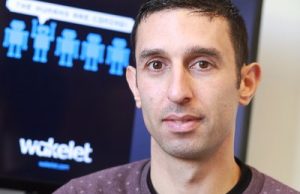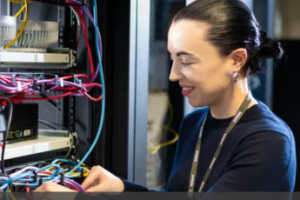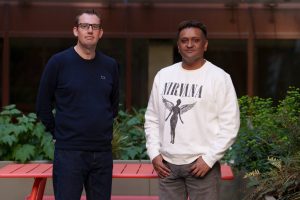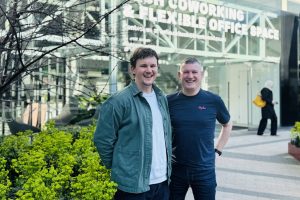Liverpool scientists at heart of ‘son of Cern’ project

The University of Liverpool is heavily involved in the next stage of development at the Large Hadron Collider (LHC) by research body Cern, which celebrated its 10th anniversary today, September 10.
Preparations are under way for the Future Circular Collider (FCC), Cern’s most ambitious project yet, which could enlighten scientists’ understanding even more of the mysteries of the universe.
The results of the LHC, buried deep in Swiss mountains near Geneva, have led to science and medical breakthroughs, and now the FCC is poised to go even further.
“This is the project of a lifetime that will take us on a voyage into the unknown and give us tools to make sense of what we see,” said Prof Tara Shears, of the University of Liverpool.
Prof Shears was a postdoc researcher when she first got involved in Cern’s LHC, currently the world’s most powerful accelerator.
So far, during its short lifetime, the LHC has uncovered some of the universe’s unsolved mysteries, including proving the existence of the Higgs boson.
The discovery of the elusive subatomic particle, which is thought to give everything else in the universe mass, led to a Nobel Prize for British theoretical physicist Professor Peter Higgs.
Prof Shears explained: “The LHC was designed to explore many fundamental questions about the subatomic universe – what is dark matter? What makes antimatter different?
“The only question we expected to definitely be able to answer was whether or not the Higgs boson existed, and that has been proven.”
The LHC is set to be eclipsed by the FCC, a massive new accelerator, which could span 100km circumference underground.
The FCC project, involving more than 130 institutes from all over the world, aims to push the energy and intensity frontiers to a new dimension.
Prof Shears said: “We have a wish list, which boils down to wanting to understand the universe’s structure better than we ever have before.
“We want to understand how the universe evolved after the Big Bang.
“We want to know what dark matter is, as this holds the key to understanding how galaxies originally evolved and why stars can rotate inside them so fast.
“And in a much deeper sense, we know our current understanding of particle physics is incomplete.
“It is fascinating to think that huge things, like galaxies and stars, and tiny atoms and particles ultimately live by the same rules – the challenge for us is finding out exactly what those are.
“We know there is new physics out there waiting to be discovered, and a deeper more fundamental understanding to be had.”
She vividly remembers the launch of the LHC, exactly 10 years ago, and believes it has inspired a generation: “LHC has made physics something cool and to be amazed by.
“I’ve noticed this change more than anything else in society.
“There’s something about our scientific adventure, our exploration, that touches your imagination and sense of what could be, and everyone can feel and share that,” Prof Shears said.
Prof Carsten Welsch is head of physics at Liverpool University and carries out research at the UK-based Cockcroft Institute – part of the FCC collaboration.
Prof Welsch co-ordinates a number of international programmes that are training engineers and scientists in accelerator science.
He agrees that Cern’s aspirational goals have lifted the ambitions of both scientists and industry: “Science is global, our international Fellows have designed instrumentation for directing and focusing high energy beams at the LHC.
“These developments were done in close collaboration with academic and business partners across many different sectors, across the world.
He added: “Particle physics is at the forefront of 21st century exploration.
“The technologies developed for these studies now find application in many other areas that benefit society. Such as novel super conducting materials that gave rise to better imaging technologies in hospitals, particle beams that are used for diagnosis and treatment of cancers, and the manipulation of big data that impacts today on all aspects of today’s society.
“The next-generation FCC accelerator is going to push technology to the limit and that technology will find use in other areas, too.
“It is a scientific and intellectual adventure whose findings will enrich our lives in ways we can’t even imagine yet.”
Cern’s plans for the FCC project are no less ambitious than those set out for the LHC before its launch, as Cern’s former director general, Rolf Heuer, explained in a new film: “Nobody gets closer to the Big Bang than we particle physicists with our super microscopes.
“But super is maybe not enough, maybe we have to be better than super – and that is the study of the FCC.
“It cannot be done by a single nation. We have to go beyond our borders.
“And, who knows, that may help make the world a little bit better.”







